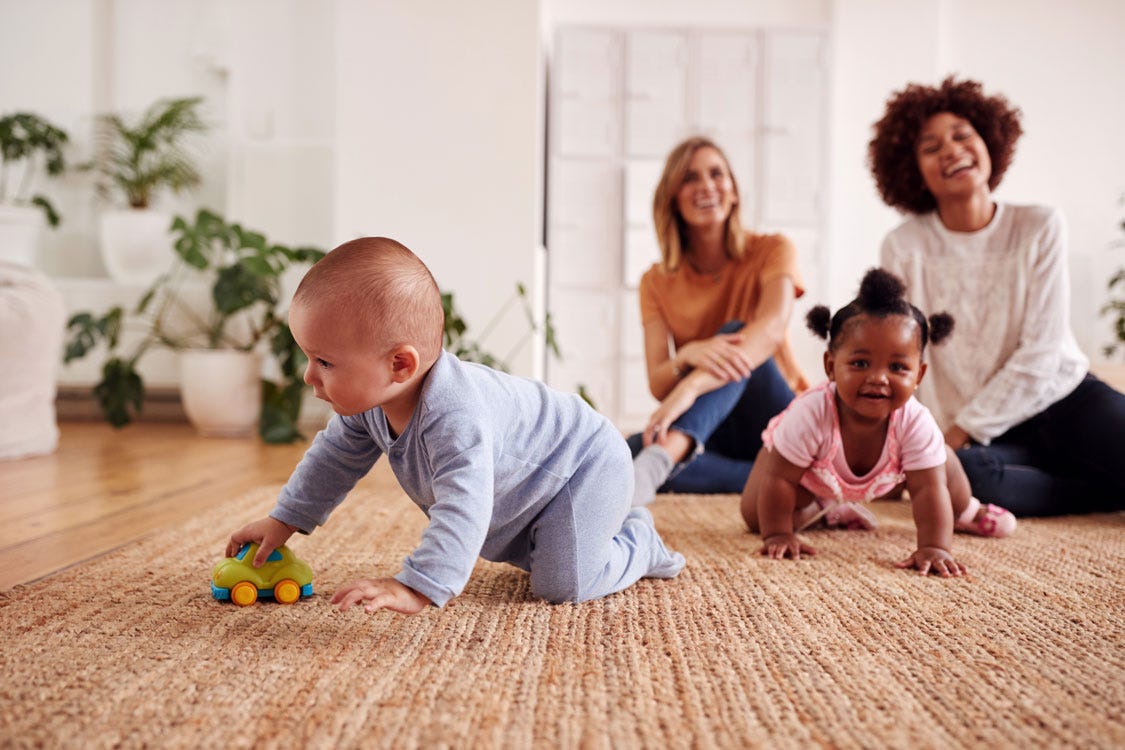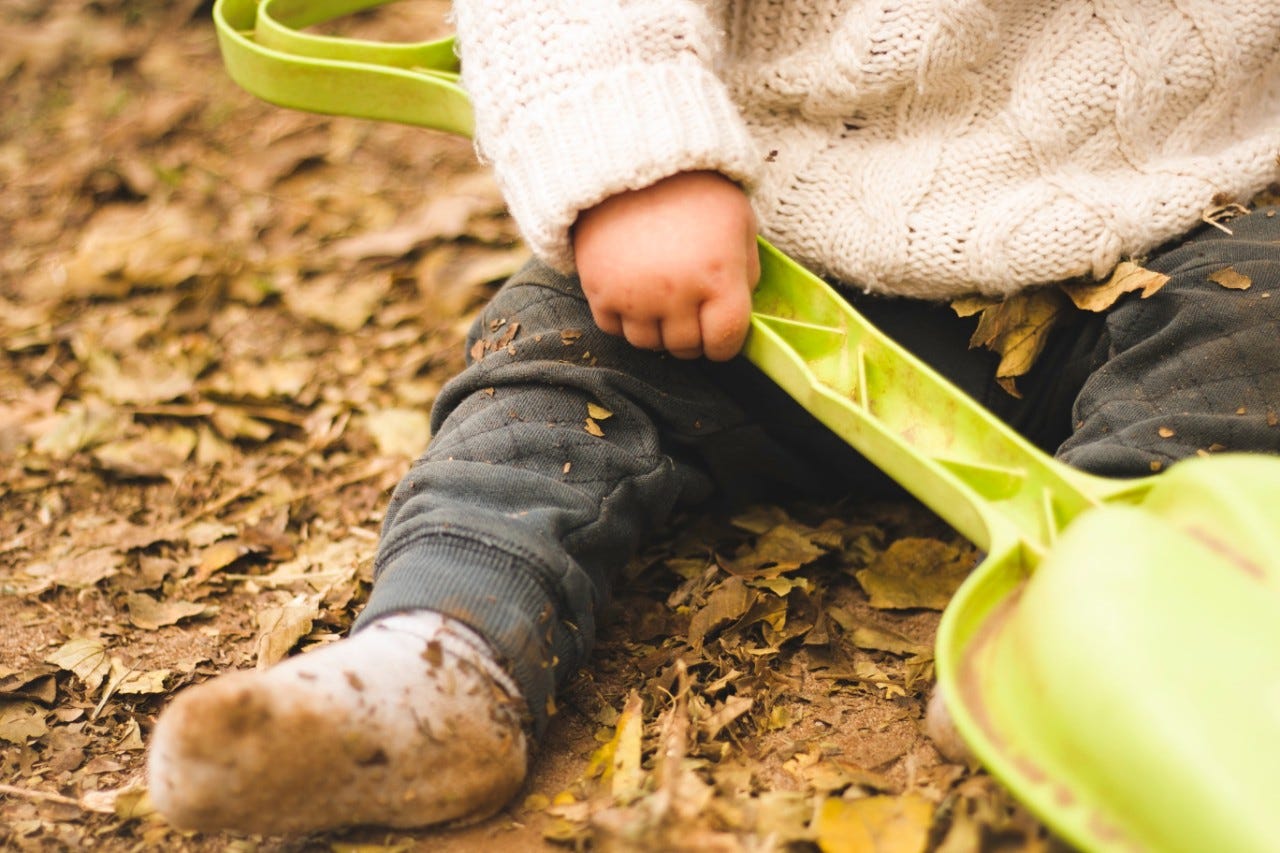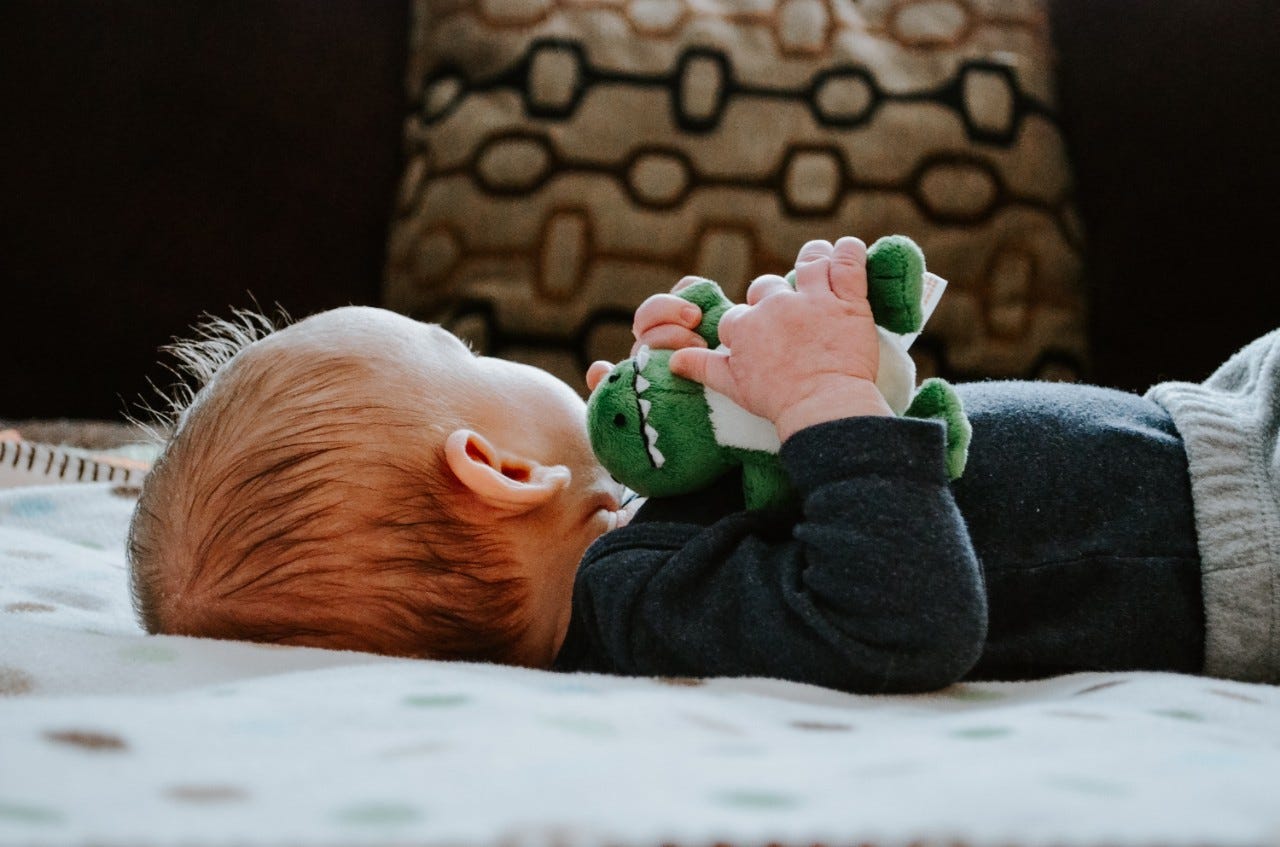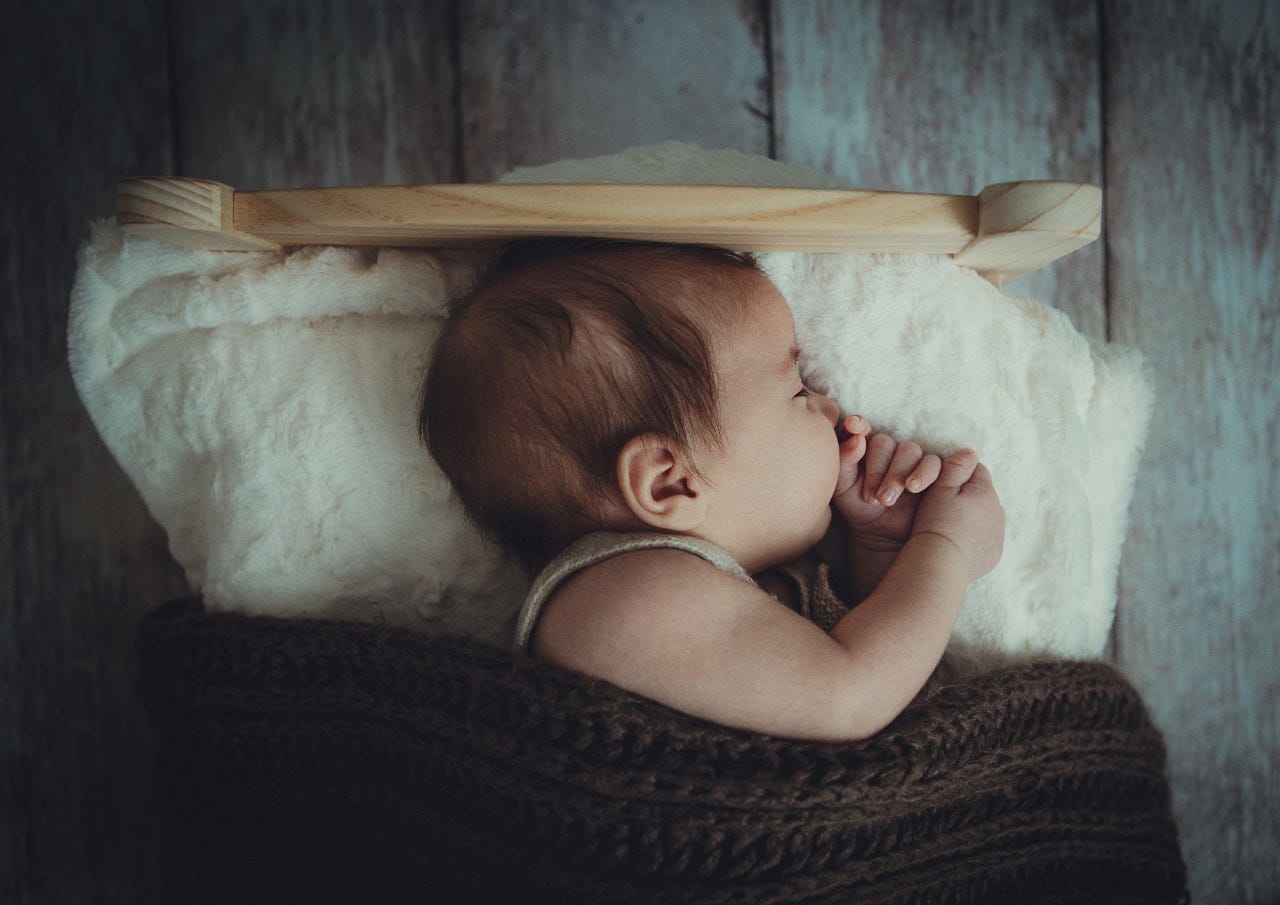Growth spurts in babies
What should you do if your baby is suddenly restless and pending? Don’t panic! This is presumably a developmental boost.

Until recently, your baby was happy, slept well and rarely cried. And now he’s grouchy, restless, wakes up a lot and is shy with strangers. Don’t panic! In most cases, it’s simply a sign that your baby is undergoing one of eight stages of development that occur in the first 14 months.
In these phases babies learn new mental and motor skills and their perception changes. This can be disturbing and frightening for them. Imagine that you suddenly see everything from a different perspective, or can suddenly hear and smell much better. Your world would be turned on its head. It’s no wonder then that babies are initially overwhelmed by the new situation and look for support and closeness from their trusted carers.
What can parents do?
Growth spurts can also be a challenging time for parents. What babies need most now is calmness, love and attention. Make time for your baby and be patient, knowing that the phase won’t last forever! Most of these phases only usually last a week.
During these phases babies usually also want to eat more. After all, learning, discovering and handling new emotions takes a lot of energy. This means that breastfeeding mums will have to feed their babies more often and stimulate their milk production.
No fixed schedule
Don’t worry if your child doesn’t keep to the exact timetable predicted by apps and guides. Some children learn to walk as early as ten months, while others only start four months later. Both are normal. Both are normal. And: For children who are born prematurely or past the due date, the calculation doesn’t start from birth, but from the originally calculated date. For example, a baby who was born three weeks early won’t enter the first phase five weeks after the birth, but more like eight.
Eight stages of development
-
1th growth spurt: from 5 weeks Week
- Your baby is more aware of the world around him and appears more alert and active
- He reacts to smells, touch and noise
- You’ll see the first smile and the first tears
- Regular breathing, your baby has fewer problems swallowing
Symptoms:
- Hungrier
- Needs lots of physical contact
- Baby cries more and is difficult to comfort
-
2th growth spurt: from 8 weeks Week
- Senses develop: your baby can see, hear and smell better
- He lifts his head and can support himself on his tummy
- He recognises hands and feet and reaches for them He can hold toys himself
- He makes noises and starts to babble and communicate
Symptoms:
- The baby shies away from strangers and often only wants mum
- Many babies start to suck on things as it calms them down
- Poor and irregular sleep
- Some babies experience a loss of appetite
-
3th growth spurt: from 12 weeks Week
- Baby reaches for objects
- He can hold up his head and starts to move his legs more
- He discovers his own voice He enjoys squealing and screeching
- Development of social skills: Your baby responds differently to different people, returns smiles
Symptoms:
- Baby wants to be near its parents
- Bigger appetite, mum needs to breastfeed more often
-
4th growth spurt: from 19 weeks Week
- First attempts to turn from stomach to back
- Motor skills are developing, your baby learns to hold objects with one hand
- He puts everything in his mouth
- Pronounced body and muscle growth
- Responds to his mirror image
Symptoms:
- Restless at night
- Always hungry, but can now start to eat solids
- Wants to be held
-
5th growth spurt: from 26 weeks Week
- Baby can wave and clap
- He learns the connection between cause and effect.
- Learns to express and differentiate between emotions such as joy, anger and fear
- Tries new sounds
Symptoms:
- Baby shies away from contact even with people he knows
- He smiles consciously, but can also become angry or frustrated
- Cries when his parents leave the room, because he is aware of the connection between his tears and the return of his parents
-
6th growth spurt: from 37 weeks Week
- Baby tries to crawl
- He knows what he wants and likes to play
- He learns to split things into categories
Symptoms:
- Your baby is hungry and is happy to try new foods
- He starts to test boundaries – education begins
-
7th growth spurt: from 47 weeks Week
- Your baby can sit well and crawl
- He starts to pull himself up He can walk a few steps while holding your hand
- He gets to know the sequence of activities and the order in which they are carried out
Symptoms:
- Your baby may be restless, moody and cry easily
- He shies away from other people and wants to be close to you
-
8th growth spurt: from 55 weeks Week
- Your baby becomes a toddler
- He tries to walk
- Tries to get his own way
Symptoms:
- Doesn’t know whether to laugh or cry
- Tantrums and frustration are common
- May shy away from strangers again
- Child finds it hard to fall asleep and sleeps badly


